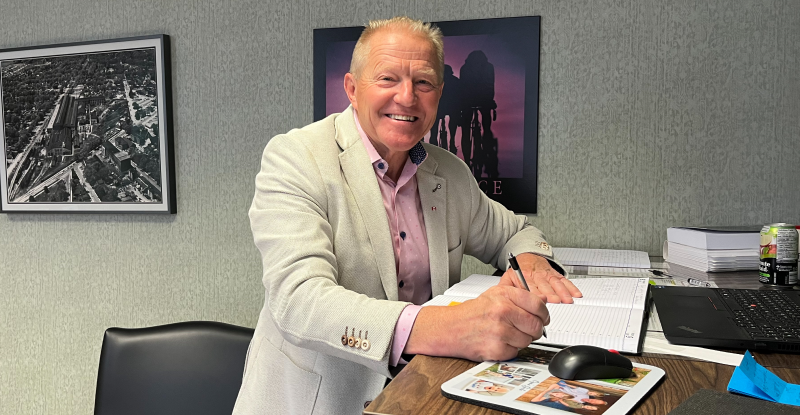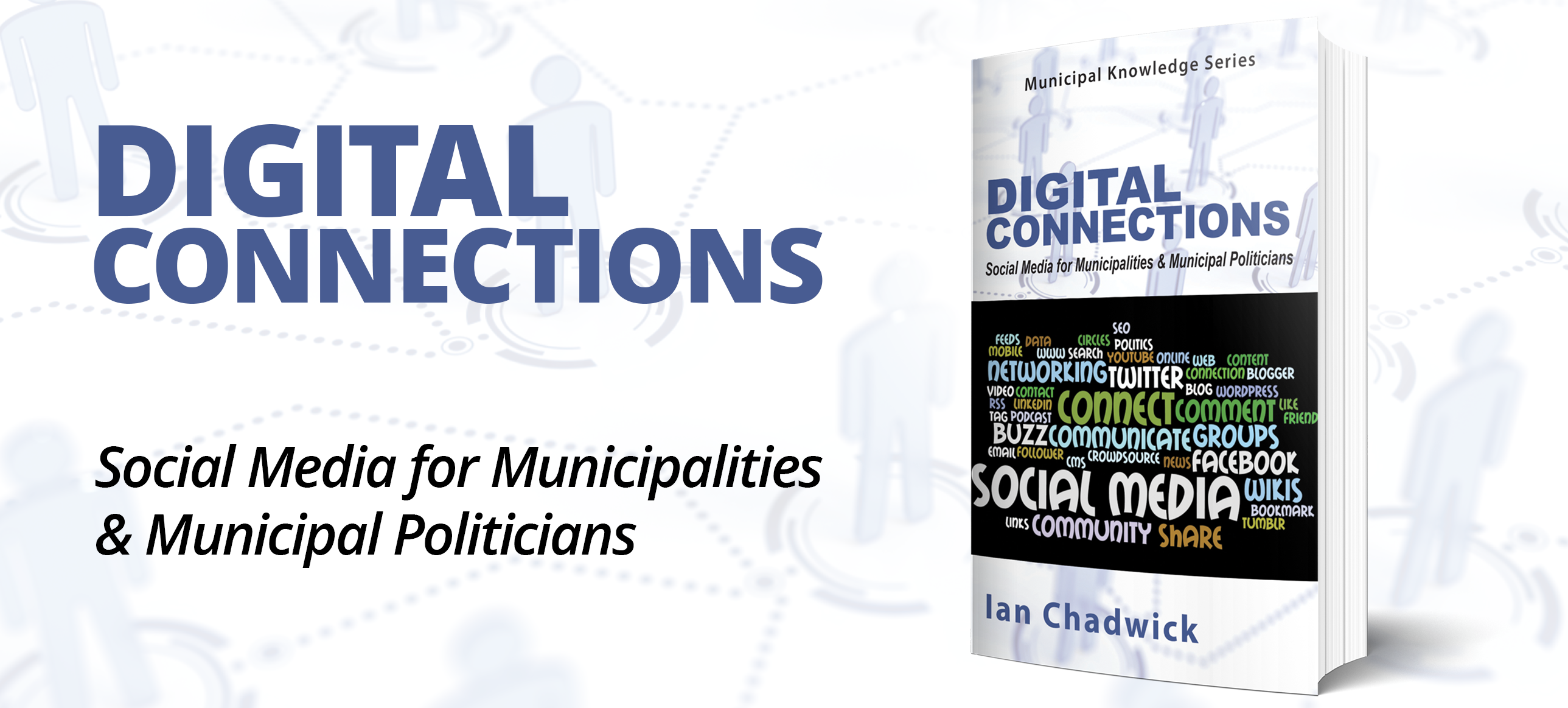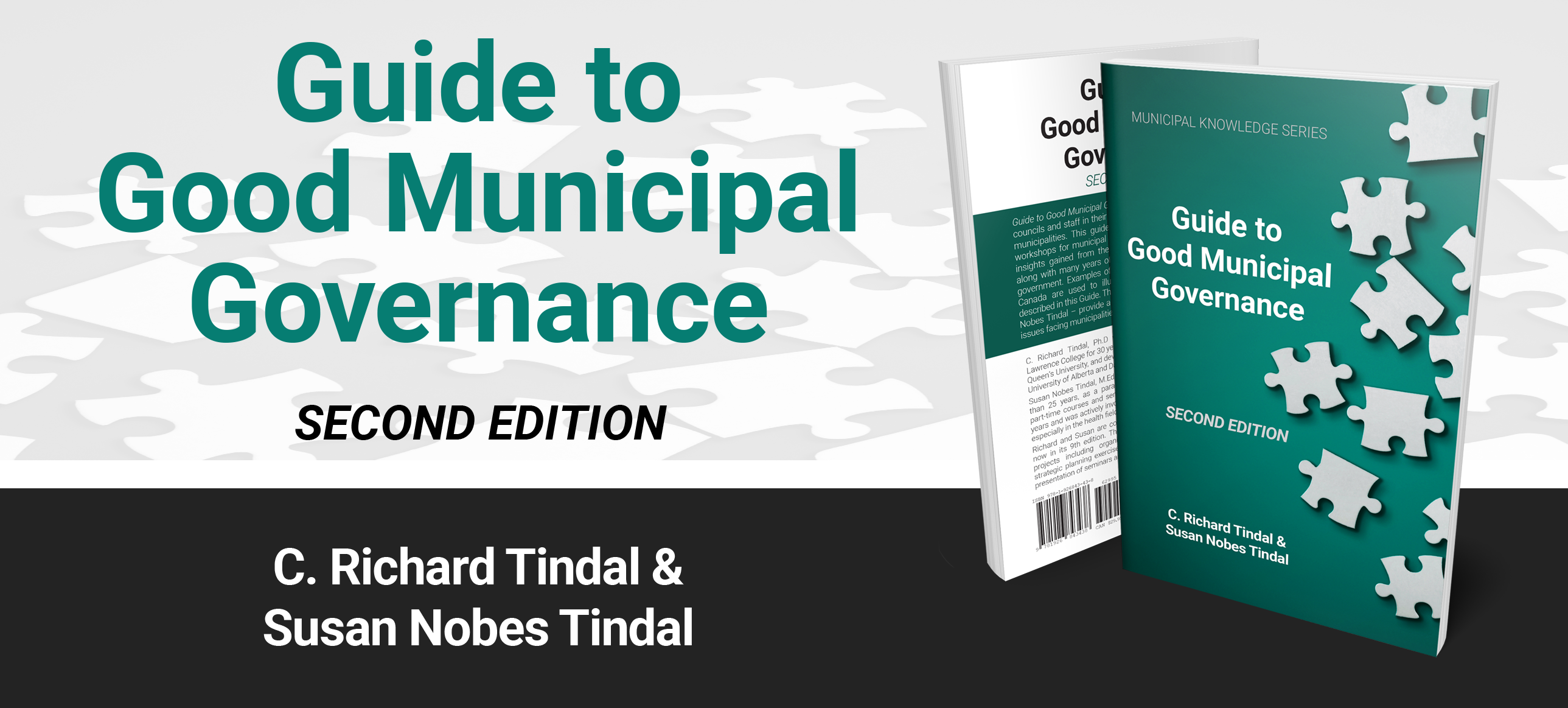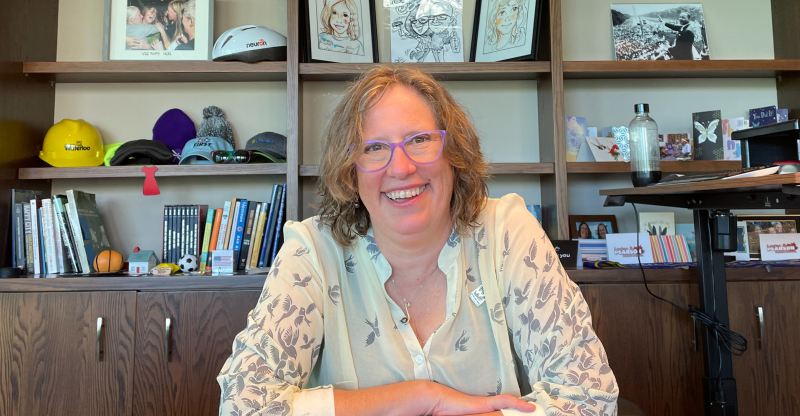Mayor Martin Ritsma: All in on being mayor, making community connections
 Despite the promises of connectivity, Stratford Mayor Martin Ritsma said he knows municipalities across the country are stepping up to face these so-called wicked problems. But even so, Ritsma said there is a national truth to be addressed.
Despite the promises of connectivity, Stratford Mayor Martin Ritsma said he knows municipalities across the country are stepping up to face these so-called wicked problems. But even so, Ritsma said there is a national truth to be addressed.
Martin Ritsma served three consecutive terms on Stratford council, two of those as deputy mayor, before he was elected mayor in 2022. With all that experience behind him, Ritsma said he has “thoroughly enjoyed” his transition into the mayor’s seat.
Ritsma credits the community for that enthusiasm. The public already knows him and a lot of community members, organizations, and agencies have been eager to sit down with him. Ritsma said he appreciates that public eagerness. Although, he said only half-jokingly, his assistant is a bit challenged by him saying yes to so many requests.
Ritsma said his eagerness sends an important message for his early months as mayor. If someone reaches out, he will not say no. Off the top of his head, he cannot recall a time where he said no. Now, he does caution people it might take a little bit of time to get on his calendar.
“I remember one gentleman saying, ‘Martin, it took me two weeks to meet you and we know each other,’” he said.
Smooth Transition to Mayor
Reflecting on the opening days of this new council, Ritsma said he did not feel overwhelmed. He did not look around and say, “Okay, now what do I do?” Instead, the transition to mayor has been smooth and is the result of his 12 years of forming relationships that are “sincere and positive.”
He certainly didn’t walk into the office and have to figure out the staff, or they have to figure him out. Instead, Ritsma recalls having an informal chat with staff once everyone arrived.
“I said, ‘Guys, you need to understand that I’m new to the role. If you see me missing something or going maybe in the wrong direction, don’t be afraid to call me on it,’” Ritsma said. “I’d rather stop the bus than try to back it up and try to undo things. That has been my mantra forever but has carried the day thus far. I don’t know how many days – 200 or whatever number of days it is – but it’s carried the day.”
Ritsma said he recognizes one glaring difference in being mayor over councillor or even deputy mayor. That difference, in recognition of the old cliché, is the buck does stop with him. In the past, if he had wanted to, he could always tell someone, “Let me reach out to the mayor and let me have conversation.” In other words, there was an opportunity to defer or deflect.
As mayor, however, he is always willing to step up and make big decisions, but he is quick to remind people just how local government decision making works.
“Sometimes they see you as the bottom line. Sometimes they figure, ‘I know the mayor, I’m going to call the mayor. And the mayor will sort it all out.’ I’m quick to remind them that there’s process and that process involves staff that are very gifted in their lane,” Ritsma said. “And it also involves a council process where the mayor rarely has veto. I don’t have the big city powers – nor do I want them, just to be clear.”
Keep Doing the Work
The mayor has talked to various MPPs and MPs over the years. And to his mind, Ritsma said, local government truly is “where the work gets done.”
Ritsma said he likes the interactive process that engages council, staff, and the public. If a council has a healthy relationship with those three, Ritsma said municipalities can handle a lot.
That ability is important in Stratford. After all, it is a city that faces the same big issues as major cities across the country. At the same time, a diversity of opportunity exists in the Festival City.
There was a time where Stratford was tagged as “a one-horse town” as it relied so heavily on the railway sector. Over time it transitioned to rely on the automotive sector. Today, the city has a strong industrial component, along with the successes in the service and tourism industries. Ritsma said that diversity and connectivity for helping Stratford through the worst of the pandemic. He also sees it as the path to the future.
“That’s part of my work moving forward – let’s bring together everyone. We see them as there’s industry and there’s tourism. We need to bring them together and build on that support that the industry gave during COVID,” Ritsma said. “We’re very blessed in in Stratford that we are so diverse. Heaven forbid we have a downturn in our industry sector, but that’s where our tourism will swing into action. We no longer can be perceived as a single-sector town.”
Despite the promises of connectivity, Ritsma said he knows council faces serious issues. Municipalities across the country are stepping up to face these so-called wicked problems. But even so, Ritsma said there is a national truth to be addressed. Municipalities need sustainable funding from the federal and provincial governments.
To “punch through” on some of the big issues – housing, mental health, addictions – Ritsma said cities need financial support. But more than just dollars, councils need to be able to work with all levels of government and all parties. Fortunately, Ritsma said he sees himself as more of a connector than a politician. And the opportunity to bring people together – regardless of order of government or party affiliation – is why Ritsma is eager to find partners wherever he can.
“Once again, it’s the willingness to work, to form relationships. I’m looking right across from me a huge map of Perth County,” Ritsma said, “People ask, ‘Why is that hanging in your office?’ I say, ‘Because what’s good for Stratford is good for the county. And what’s good for the county is good for Stratford.’ That’s where that work with AMO [Association of Municipalities of Ontario] is so important. What’s good for one municipality of the 444 [in Ontario] is more than likely going to be good at some point for Stratford.”
Grounded in the Community
As much as his purpose is to work collectively in the best interest of Stratford, Ritsma said he also tries to do what is best for himself and his family.
Don’t try to do things alone, Ritsma said. This starts first and foremost with his wife, Kathryn, who has been by his side since they were high school sweethearts.
Ritsma said he is glad to be able to bounce ideas off Kathryn, who is also “pretty quick” to keep him grounded at the end of the day. He also credits his religious faith, but said there are many ways of “reaching out and being involved in a spiritual life.”
Staying involved is also important. Staying grounded in the community, Ritsma said, can be done by continuing open dialogue with the public. One good example of this approach is found in his “almost daily” trip to his favourite coffee shop. This is only one example of the mayor inevitably chatting with people wherever the opportunity presents itself.
“Early on I’m sending a message that I’m all in. I’m not sticking a toe in here to see what the temperature is. I’m the frog in the boiling water, and I haven’t jumped out yet,” Ritsma said. “I love the role. Sometimes I wish I had a little bit more time in the day, but it’s been every bit as much as I thought it would be and more.” MW
✯ Municipal World Executive and Essentials Plus Members: You might also be interested in Sean’s other article: Local government champions look ahead to new experiences.
Sean Meyer is Senior Editor for Municipal World.
Related resource materials:



